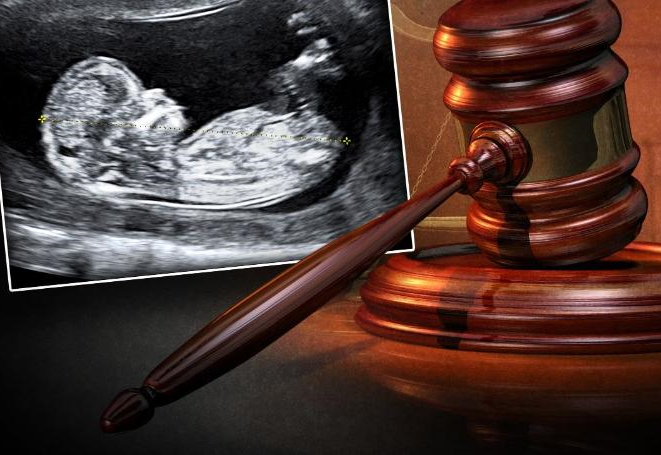A zombie is a dead body revived, often in a much uglier state than the original life form. After Dobbs v. Jackson Women’s Health Organization, pro-lifers might have thought Roe v. Wade was deceased and buried. If so, they were wrong. Like the zombies of horror lore, Roe lives in a new, even more distorted form. The contest has shifted from federal to state judiciaries, with those judges interpreting state constitutions instead of our national one and pro-choicers looking for state-level Roe v. Wades to replace the now-overturned Supreme Court precedent.
South Carolina’s Supreme Court has obliged. In a 3-2 vote , it struck down the state’s six-week abortion ban, claiming it violated the state constitution’s protection of a right to privacy. In so doing, those judges ignored the wisdom of Dobbs, choosing instead to repeat the errors of the Dobbs dissent, as well as those of now-scuttled Supreme Court precedents.
For starters, the state court suffers, as did Roe, from a lack of textual support. The majority in Thursday’s decision of course would disagree since South Carolina’s constitution includes an enumerated right to privacy, something the U.S. Constitution lacks. The U.S. Supreme Court leaned on this omission in overturning Roe, and the South Carolina majority used it essentially to ignore Dobbs. Yet as far as abortion is concerned, this distinction makes no difference. While the word “privacy” is there, the word “abortion” doesn’t appear in South Carolina’s constitution. Thus, no enumerated right to terminate a pregnancy exists under that document. The state court can only reach its conclusion by saying abortion is a right implied by a general privacy protection. The justices fail to prove this point. In trying to do so, they compound the Roe-resembling errors.
As with Roe, these judges either dismiss, misread, or outright ignore the context surrounding the disputed constitutional provision. They dismiss evidence that abortion wasn’t included under the privacy clause by accusing its composers of lacking gender diversity and thus engaging in sexism (a smear the Dobbs dissenters also leveled).
They misread state precedent that focused on quickening as the point of legal protection for unborn children. One of Thursday’s dissents, drawing on the Dobbs majority, rightly points out that this line most likely came from a lack of medical knowledge that life existed prior to that point, not a comment on when life actually began. Even if so, the line itself does not create a right to abort before that time.
Please follow LifeNews.com on Gab for the latest pro-life news and info, free from social media censorship.
Similarly, and as with Roe, these judges ignore a point essential to whether abortion falls under privacy: the status of the unborn child. The South Carolina majority argues that, at least before viability, the law cannot distinguish abortion from any other medical procedure on a woman’s body. That reasoning is akin to the logic made by Chief Justice Roger Taney in his infamous Dred Scott v. Sandford decision — that, in property terms, human beings held no moral or constitutional difference from physical objects. The dissents see right through this, hammering that abortion is unique in that it involves the destruction of an unborn child. That uniqueness makes it a medical decision that is definitively not private but involves the health and safety of another person.
Taken together, we see these judges making the same general mistake as those deciding Roe. They refuse to bind themselves to their constitution’s text as originally understood. Instead, they opt for a reading seeking to “evolve” the constitution in light of subsequent events and perceived contemporary opinions. In doing so, they abdicate their role as judges, a role that limits them to interpret the law as written. Instead, they trade a legitimate task for an illegitimate one: rewriting the constitution from the judicial bench.
Despite Dobbs, we now face the woes of state Roes. We face the repeat of its mistakes regarding the meaning of constitutional provisions. We’re poised to suffer the old errors of judicial intrusion into the democratic process, this time having to watch as that intrusion destroys the lives of innocent, unborn human beings. Roe should have been left in its grave.
LifeNews Note: Adam Carrington is an associate professor of politics at Hillsdale College. This column originally appeared at Washington Examiner.








